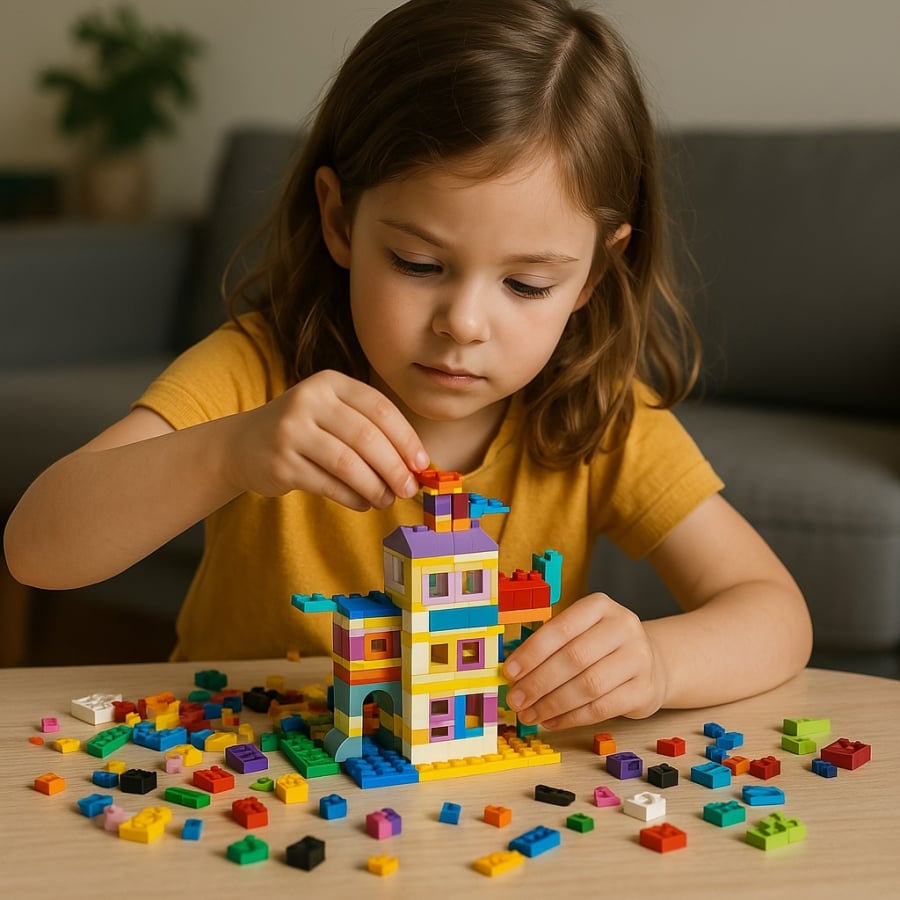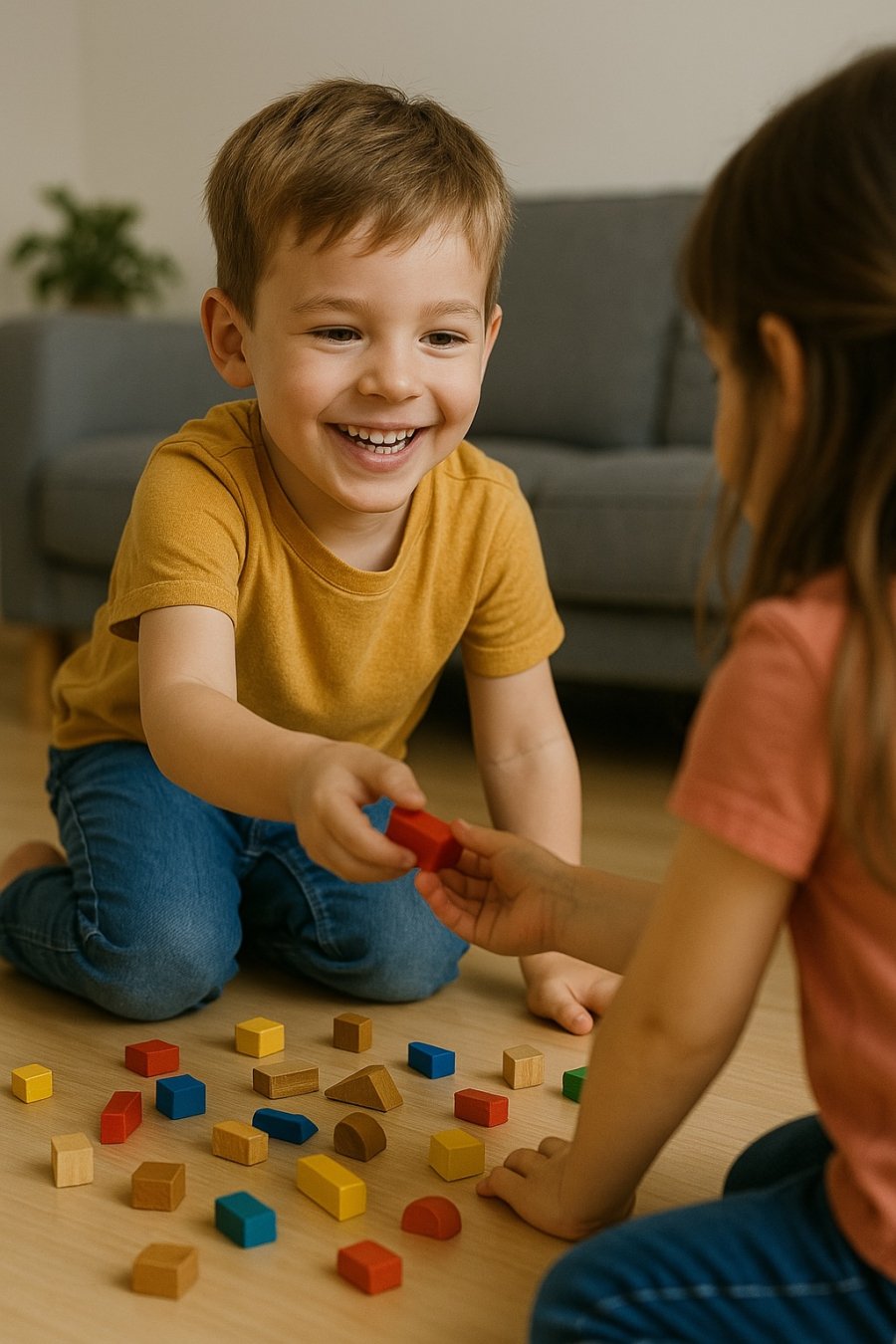As a parent, one of the most intriguing questions I often ask myself is: How can I recognize if my child has exceptional potential? Understanding this not only helps us know our children better but also allows us to support their development in the right direction. According to Dr. Nguyen Thi My Loc, a renowned educational psychologist in Vietnam, early identification of a child’s potential signs is of utmost importance. “Parents are the first people to interact with and observe their children daily, so they need to be sensitive to any unusual behaviors,” she shared in an interview with VnExpress newspaper.
Today, I want to share with you five positive signs that may indicate your child has unique potential. Let’s explore them together!
Curiosity and Eagerness to Learn
Your child constantly asks countless questions like, “Why is the sky blue?” “Do fish sleep?” or even, “Mom, why do we have Christmas?” Don’t get tired of this just yet—it could be a sign of their strong curiosity and desire to discover the world around them.
According to research published in the Tuoi Tre newspaper, children with high curiosity tend to easily absorb new knowledge and develop logical thinking. They learn not only from books but also from life experiences. So, encourage your child by patiently answering their questions or exploring information together through books, the internet, or conversations with adults.

Independent and Creative Thinking
Have you noticed that your child prefers to come up with their own solutions to problems instead of following a set pattern? For instance, instead of assembling Lego sets according to the instructions, they might create something entirely new and unique. This is a sign of independent and creative thinking.
Ms. Ha Anh, a Montessori educator in Hanoi, shared in an article on Zing News: “Children tend to be creative when given the freedom to experiment. Too much intervention from parents can sometimes hinder this ability.” So, let your child explore and express their creativity without imposing your thoughts on them.
Effective Communication and Confidence
If your child can connect with people around them, be it grandparents, teachers, or classmates, it’s a notable sign. Confident children typically express themselves clearly, listen to others, and respect different opinions.
The Thanh Nien newspaper quoted Associate Professor Dr. Pham Thi Thuy, a child psychology expert, who emphasized: “Good communication skills lay the foundation for children to build solid social relationships and develop leadership skills in the future.” Encourage your child to participate in group activities and have open conversations with them to boost their confidence.

Perseverance and Problem-Solving Skills
Remember the last time your child tried to assemble a complex toy without giving up midway? That’s a testament to their perseverance and problem-solving abilities—two crucial factors for overcoming life’s challenges.
According to Dr. Le Nguyen Phuong, author of the book Dạy con trong hoang mang (Parenting in Confusion), interviewed on Vietnamnet, “Persistent children tend to achieve greater success in their studies and future careers.” To support your child, create opportunities for them to practice tasks that require patience, such as simple cooking, gardening, or puzzles.
Empathy and Responsibility
Last but not least, if your child frequently shares their toys with friends, voluntarily helps others, or shows concern when someone is sad, they are displaying empathy and a sense of responsibility. These are valuable qualities not commonly found in all children.
The Phunu Vietnam newspaper once quoted psychologist Duong Thi Thu Ha, who said, “Empathy helps children become contributing members of society and build a better community.” Acknowledge and praise your child whenever they perform kind deeds, making them feel proud and encouraged to continue these behaviors.
Advice for Parents
To nurture these potentials, parents should:
- Create a safe and stimulating environment for learning and play, fostering creativity.
- Encourage children to ask questions and explore topics in depth.
- Listen to and respect your child’s opinions and emotions.
- Accompany your child in extracurricular activities to develop their soft skills.
Conclusion
Parenting is not just about caring for and protecting our children; it’s also a journey of discovery and companionship. Every child is a precious gem, and our task is to help them shine. I hope that through this article, you have found useful insights to recognize and nurture your child’s potential.
Best wishes to all parents, may you always have patience, love, and pride in your little angels. Remember, every step of your child’s progress is a priceless happiness for us!





































